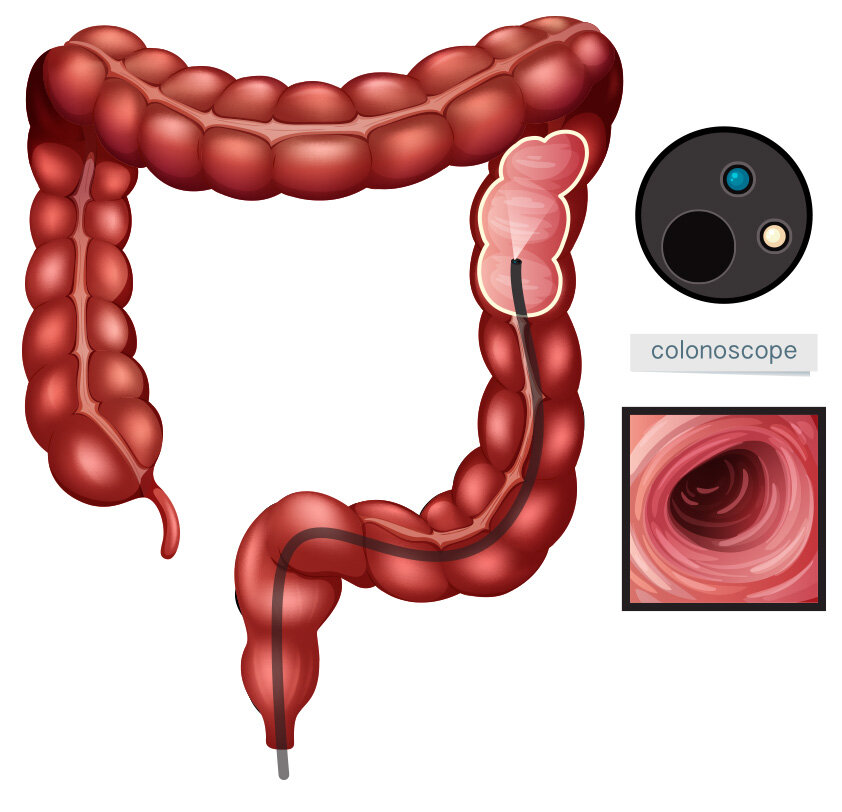Lower GI endoscopy (Colonoscopy)
What symptoms may be investigated via colonoscopy?
Abdominal pain
Anaemia
Changes in bowel habits
Bleeding from the bowels
Unexplained weight loss
What conditions may be diagnosed with the aid of a colonoscopy?
Colonic or rectal Polyps
Colon cancer
Rectal cancer
Diverticular disease
Haemorrhoids
Inflammatory bowel disease
What is involved in having a lower GI endoscopy (Colonoscopy)?
The colonoscope is inserted via the anus and passed through the entire colon and often into the last part of the small bowel. Biopsies may be taken during the procedure and any polyps found may be removed for further assessment and to prevent any future malignant change. If other procedures are to be carried out during the colonoscopy these will be discussed with you in detail in advance, these may include treatment of any haemorrhoids found.
In preparation for a colonoscopy you will need be on a low fibre diet for few days. In the 24 hours prior to the procedure you will be on a clear fluid diet only and you will need to take doses of ‘bowel prep’ formulations that clear the bowel of all faecal matter. Detailed instructions will be provided to you in writing by Dr Ghadiri. It is best to stay at home the day prior to the procedure for the process of taking the ‘bowel prep’.
This is performed as a day procedure, meaning you will not need to stay overnight in hospital. The procedure usually takes under 30 to 45 minutes and is performed under sedation (not a full anaesthetic). You will spend a total of three to four hours in the hospital. You will need to be driven home by a friend or family member. You will not be able to drive or operate heavy machinery for 24 hours after the procedure.
Where will my colonoscopy be performed?
Dr Ghadiri performs colonoscopies at Brisbane Private Hospital (Wickham Tce) and the Wesley Hospital in Brisbane and at St Andrew’s Private Hospital in Ipswich.

